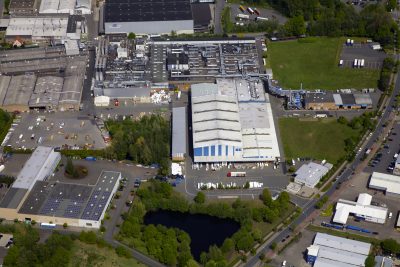Solving the problems of one of the world’s most important and threatened ecosystems is no easy fix. At a roundtable from Milan, Italy, with appearances from São Paulo and the Amazonian rainforest in Brazil, Sofidel announced an exciting partnership with one of its suppliers Suzano – Together we plant the future. The program has two aims: to help protect biodiversity in the Amazon region and support local communities – also demonstrating the value of collaboration across the supply chain
Leading tissue paper producer Sofidel and Suzano, the world’s largest producer of hardwood pulp, have joined forces on a three-year pilot project to promote the ecological conservation and restoration alongside supporting socio-economic development in the Amazon region in Brazil.
At a roundtable in Milan Italy, to launch the partnership, Andrea Piazzolla, chief purchasing officer at Sofidel said, “Today a company committed to building a sustainable future and create value for all its stakeholders must ensure that its suppliers share the same vision and way of operating. We are pleased to partner with Suzano, one of our biggest suppliers, to make a difference. They share our values, so it was natural to join forces to tackle both social and environmental issues in one of the poorest regions in Brazil.”
Speaking at the launch he said the project was one of the most beautiful things he had done in his life, both professionally and personally as it is related to people – 1,400 families will be supported by this project. “We had been looking for a common project for some time,” he continued. “Suzano proposed the project to us in the Brazilian states of Maranhão and Pará.”
Watch the video here:
The project will fund the creation of a biodiversity corridor in a 2,210 sq km area of high ecological value rainforest, across the border between these states. This will be achieved through a combination of natural habitat restoration and sustainable agroforestry systems – tree planting combined with agriculture on the same piece of land.
Paulo Jose de Souza Chaer Borges, Suzano’s managing director EMEA, added: “Businesses can change the word for the better, but we can’t do it alone. If we work together, we can magnify our impact. This is why we are excited to partner with one of our biggest customers, Sofidel, to accelerate the promising early impact that we have seen in our social and environmental sustainability programs.

A map showing the project’s location in the Amazon basin
A bold project
Sofidel and Suzano have called on the experience of the Brazilian Institute for Development and Sustainability (IABS) to help implement this project in the field. At the launch, its representative Eric Sawyer, president of the deliberative council of IABS, expressed the institute’s honor at being included in “this bold project”.
“IABS has been involved in projects in favor of local development on a more equitable basis for 20 years,” Sawyer said. “Finding solutions is not simple and we are excited to contribute our experience of creating a significant social and environmental benefit in one of the most threatened areas of forest in Brazil. Rural exodus is one of the main problems. Young people leave for the urban centers to earn money. If we want to protect the Amazon forest, most of our work needs to be aimed at the young people. We need to create opportunities for them.”
As part of this project, in fact, structured social initiatives will help lift local communities living alongside the rainforest out of poverty – at the same time as improving their food security and nutritional quality – by scaling sustainable business models, including the cultivation and commercialization of Brazilian native plant species such as açaí berries and babassu coconuts, and increasing agricultural productivity.
Very specific, sustainable, and tailor-made actions
Emanuela Evangelista a conservation biologist and environmental activist also spoke at the launch. A member of the Species Survival Commission (SSC) of the International Union for Conservation of Nature (IUCN), Evangelista is also president of Amazônia Onlus, an Italian non-profit active to defend the forest and the people of the Amazon, and a trustee of Amazon Charitable Trust. She has lived in a remote area of Amazonia for 20 years. The nearest town, Manaus, is 400km away.
She reminded attendees to the roundtable that 47 million people live in this region, so “it is not empty”. These inhabitants, she said, are the first defenders of the forest and urban migration leaves the forest defenseless. “We must have a more sustainable management of the productive areas of the forest. We also have to combat poverty. This is what the Amazon basin needs to protect its future – very specific, tailor-made actions and the involvement of every sector of industry. The beauty of the project is it puts together many different players. Government, private companies and local populations are involved. Together is the key word,” she said.
“Sofidel inspires Suzano,” adds Borges. “I was very impressed since the beginning when I saw the company’s consistent approach to sustainability. This project is going to set the stage for bigger projects and doing the right thing on solving the issues in the Amazon region.”
Piazzolla concurred: “This is a first step. There are plenty of problems [in the region] but we have to start somewhere,” he said.

Webinar participants: Andrea Piazzolla, Emanuela Evangelista, Paulo Jose de Souza Chaer Borges, Eric Sawyer
Further details:
Main picture: Emiliano Mancuso. Additional picture credits: Riccardo Scibetta, Fabio Liggeri, Archivio Amazzonia.






